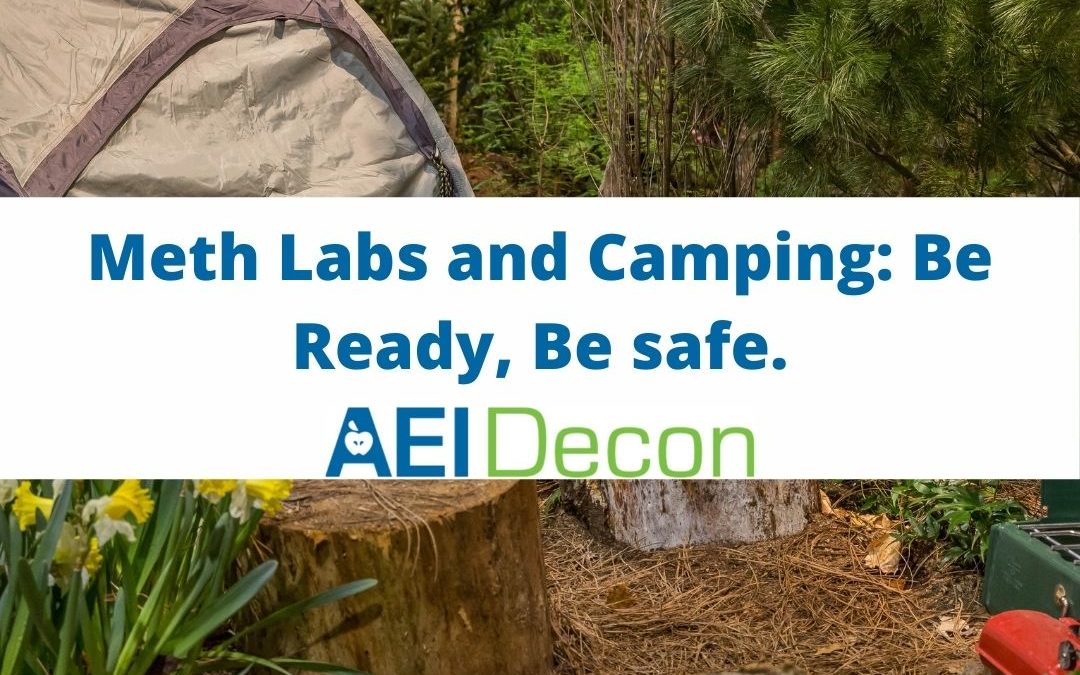Living in Utah offers many wonderful opportunities for adventure. With five national parks, eighty distinct mountain ranges, and some of the most unique geographic formations in the world, our state has become a global destination for outdoor enthusiasts and sightseers alike. From rockhounding to skiing and hot springs to petroglyphs, there’s truly something for everyone. It’s no surprise, then, that many Utah citizens are avid nature lovers and campers. In fact, many consider camping a staple of their summer fun and a necessity to their mental health.
So, what do meth labs have to do with camping in Utah’s natural wonders? Cooking illicit chemical compounds isn’t what most folks think of when they imagine their weekend getaway. Well, the answer may surprise you.
Meth Labs and Camping
Meth labs truly can be anywhere. This is an unfortunate fact. Churches, schools, barns, homes, apartments, and even public restrooms are just a few common locations for illicit cooks. Sadly, the great outdoors is no exception. In fact, the Forest Service of the U.S. finds hundreds of meth labs in national parks and campsites each year. And, let us emphasize, those are the labs they find. It speaks nothing of the cooks that go unnoticed.
Over the years, it has become increasingly difficult to operate meth labs in the average U.S. city. Law enforcement and health departments have taken the threat of meth seriously, working hard to shut down and prosecute labs to the full extent of the law. This is (in part) because cooking meth leaves behind harmful residues, which can make you and your family ill.
However, these efforts have put pressure on dealers and cookers to create alternative means of production. Some of these include relying on small-scale operations and smaller batches. Mobile meth labs and the shake-and-bake method are and examples of this strategy, creating the potential for widespread contamination. Other efforts include transporting meth across borders, resulting in many vehicles testing positive for meth. And, of course, many simply move the whole operation further from the eye of the law, making camping spots and remote locations ideal for such illegal activities.
How To Identify Meth Labs in Nature, and What To Do About It.
There are many signs of a potential meth lab. Be on the lookout for propane tanks or other pressurized cylinders, strong chemical odors, shredded lithium batteries, drain cleaners, empty cold-medicine packages or containers, salt (and other white substances,) chemistry equipment such as glasses and tubes, needles, coffee filters, and so forth. Take note of any large burns on the ground, often related to dumping chemical waste, and a build-up of trash in general. These are all the tell-tale signs of a meth-lab. And, yes, these damaging wastes and dangerous materials are often abandoned and left behind.
If you do come across such a site, please be safe. Keep your distance, and do not touch the leftover material. Apart from being toxic, the process of making meth is extremely flammable. In fact, police will often discover labs only after an explosion or fire. And there are many other potential hazards. For instance, pressurized systems can fail, spraying dangerous substances like ammonia and hydrochloric acid—burning your skin and eyes. Furthermore, even dry, many chemicals remain flammable, creating the potential for forest fires.
It is equally dangerous to approach anyone suspected of cooking or smoking meth. Apart from the obvious implications of any large-scale criminal activity, such drugs can cause psychosis and paranoia making users unpredictable and irrational. Rather than approaching such individuals or sites on your own, we recommend reporting them to the local authorities, including the park ranger—should you find yourself in one of our National Parks. They should be able to give you more recommendations about whether or not the area remains safe for your weekend plans.
And remember, in the absence of such an official, it’s always wise to be safe rather than sorry. Remember, meth labs are combustible, with a real chance of creating fires (especially in dry seasons.) So, keep open flames and sparks away from the area. You may also want to find another location for your trip until the right officials can tend to the issue.
Certified Decontamination Specialists
Whether in your home, a forest, or any other property, meth is not a substance to ignore. That is why the state of Utah has created programs that train professionals to effectively respond to methamphetamine contamination. Certified Decontamination Specialists have the knowledge and resources to help with residual meth, no matter where. Be sure to call one in your area any time you find yourself confronted with a meth lab or possible contamination in your home. If you’re in Utah, AEI Decon is happy to provide a free consultation. Give us a call at (801) 888-6698.

